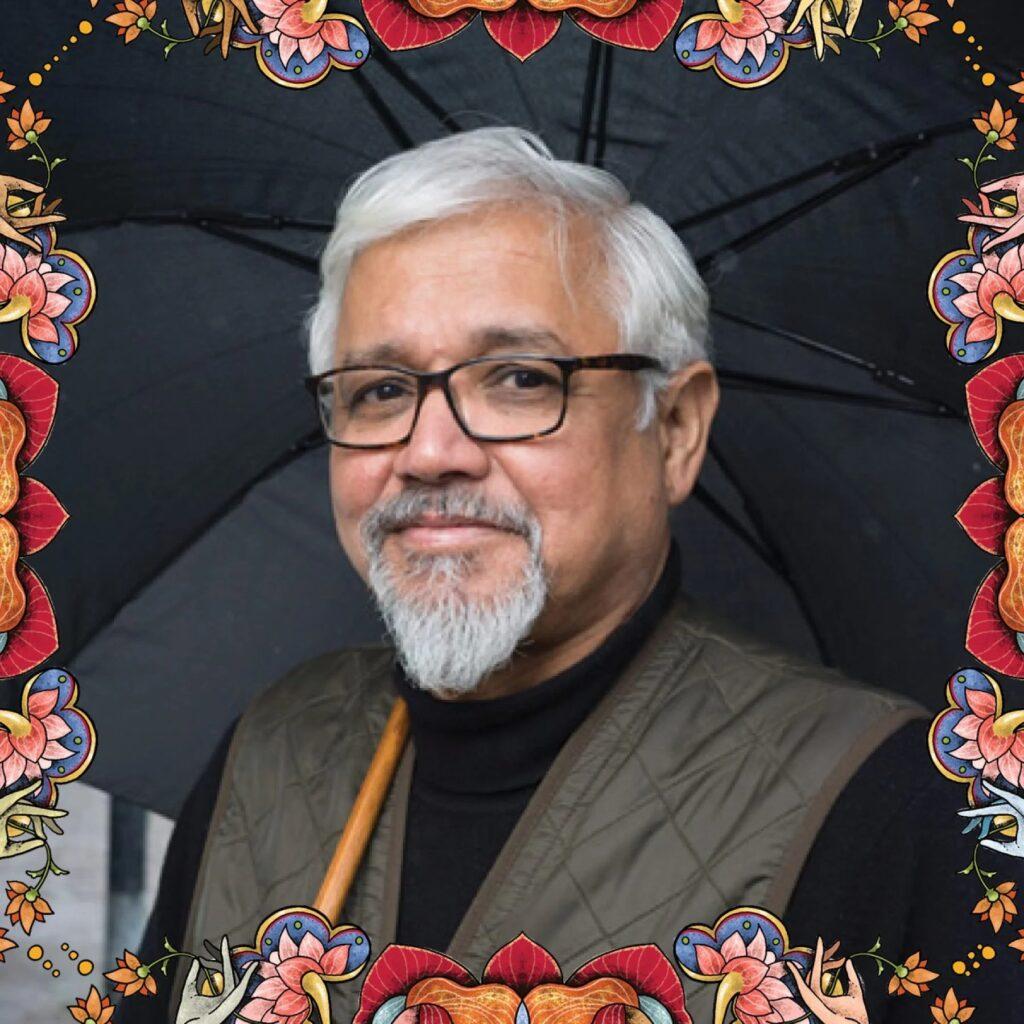“Who sings for the nutmeg?”
The question, posed by author and activist Amitav Ghosh to a crowd of 200 at Georgetown University on March 30, characterizes the writer’s desire to share stories about the environment that return agency to nature. In his newest book, “The Nutmeg’s Curse,” Ghosh weaves together the impact of European competition, laissez-faire capitalism, colonialism and the dismissal of Indigenous ways of relating to the natural world, to tell the story of how the 17th century nutmeg trade upended a small community in the Indian Ocean.
The lecture was the keynote event in the “Voices on the Environment” series hosted by the Georgetown Earth Commons, and there, Ghosh said that although the story depicted in his book is from 400 years ago, it can serve as a lesson for how people should address climate change today.
“We think of ourselves as being completely separate from nature; we think of trade today as mainly being guided by non-natural and manufactured goods, so what possible bearing could this centuries-old story have on our time?”, Ghosh said at the event. “But the trouble with that narrative is that it’s not true. Humanity is today even more dependent on botanical matter than it was 300 or 500 or even five millenniums ago.”
Co-sponsored by university programs including the Georgetown Humanities Initiative, Laboratory for Global Performance and Politics and the Lannan Center for Poetics and Social Practice, the lecture featured a presentation of Ghosh’s book and a discussion between the author, renowned writer, painter and 2023 Lannan Foundation Visiting Chair Rabih Alameddine and Earth Commons post-baccalaureate fellow Ashanee Kottage (SFS ’22).

Ghosh, who grew up between India, Bangladesh and Sri Lanka, has won multiple accolades for his prolific, decades-long literary career, including the Dan David prize for interdisciplinary research, the Grand Prix of the Blue Metropolis festival, which celebrates multilingual literature, and the Jnanpith Award, the oldest and highest Indian literary award.
At the event, Ghosh described the unique responsibility writers have to comment on the anthropocene and climate change through the stories they write. According to Ghosh, scientists, economists, literary scholars and historians are limited in how much they can ascribe agency to the environment.
“They’re essentially not allowed to do it,” Ghosh said. “In fact, the only people who historically have had the license to capture or represent non-human voices are storytellers. Whether it be Valmiki writing “The Ramayana” or Homer with “The Odyssey,” storytellers and poets are the only people who have had that license. And in effect, they still have that license today.”
According to Ghosh, historic and scientific perspectives of the environment fail to feature nature as a protagonist in its own narrative. Ghosh said he believes that this narrow, human-centric point of view is what has allowed for environmental exploitation both hundreds of years ago and today.
“In the stories that historians tell, entities that lack language figure only as backdrops against which human dramas are enacted,” Ghosh said. “Nutmegs, cloves and volcanoes may figure in those stories but they cannot themselves be actors in the stories historians tell nor can they tell stories of their own.”
Pace Schwarz (CAS ’23) attended the lecture and said he enjoyed Ghosh’s efforts to dispel the belief that people are separate from the rest of nature.
“I was really struck by his articulation of non-human agency,” Schwarz wrote to The Hoya. “It doesn’t mean that the trees are talking — rather it emphasizes the profound interconnectedness of human societies with their environments. It reminds us that our species is one of many stakeholders in a worldwide ecosystem, and that we invite only death and oppression when we see plants, animals, and the Earth itself as resources rather than partners.”
According to Ghosh, many people still see non-human entities as lacking agency and being “inert” or “silent.” In “The Nutmeg’s Curse,” Ghosh chronicles the story of how the New World exploitation and trade of rare nutmeg disrupted the lives of the Indigenous peoples who lived where the spice grew: the Banda Islands in Indonesia.
In his book, Ghosh depicts the nutmeg and the volcano on the main island, Gunung Api, as objects of spiritual importance. Ghosh discussed how certain views of nature, like the Western perspectives promoted by the Dutch or English traders that came to the Banda Islands, failed to adequately create links between people and the environment by only focusing on the Earth’s utility and natural resources. Ghosh said most Asian and Indigenous stories are always grounded in a space while European stories are usually tied to time, a difference that varies how much agency is given to the landscape in narratives including nature.
Ghosh said he hopes his books can help readers reflect on the parallels between 17th century trade and humanity’s modern exploitation of the natural world.
“The idea that modern man has freed himself from the planet is not just absurd — it’s a dangerous delusion,” Ghosh said. “Once the reality of humanity’s ever-increasing servitude to the planet is acknowledged, the story of the Bandanese is no longer so distant from our present predicament. To the contrary, the continuities between the two are so pressing and so powerful that it could even be said that the fate of the Banda Islands may be read as a template for the present — if only we knew how to tell that story.”









Brooke • Apr 13, 2023 at 10:48 pm
This is an amazing article. Thanks for the insights. Glad Georgetown is promoting these events.